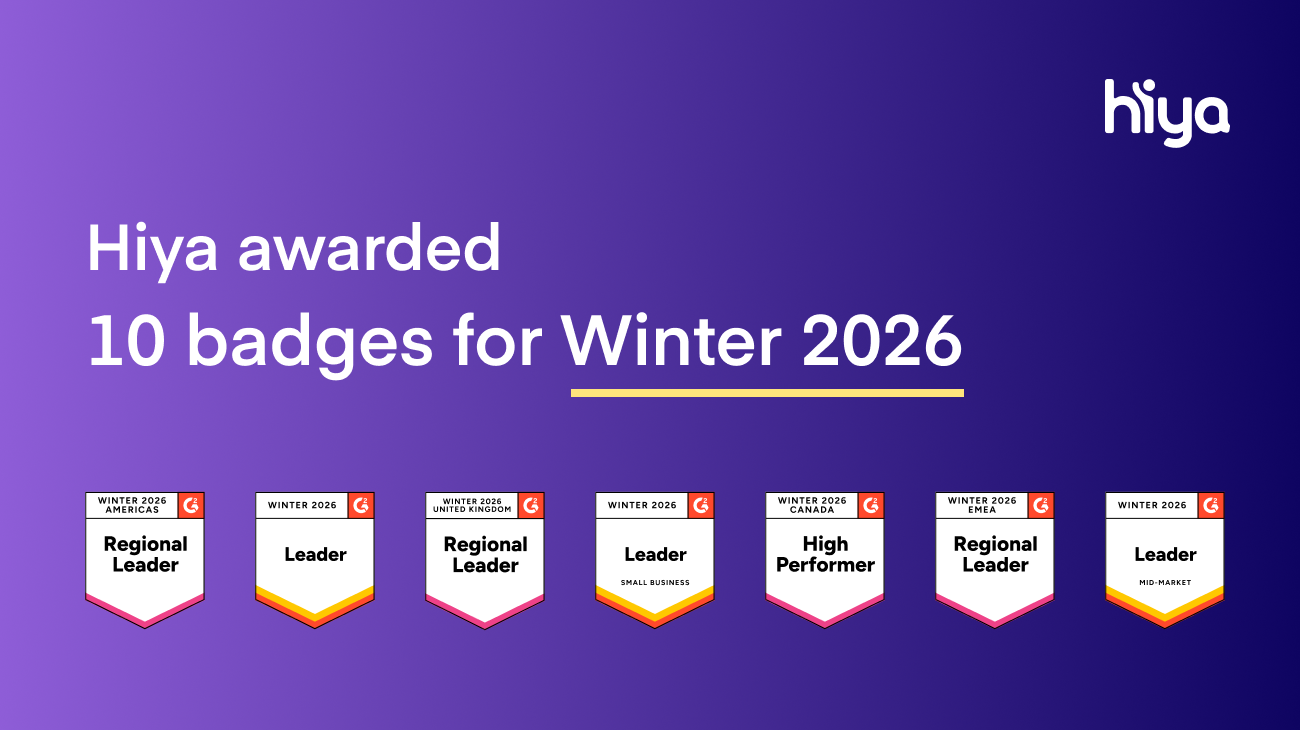
People are generally willing to open their wallets to help others in need, whether it’s to help victims of a natural disaster or fund research to fight cancer. This presents an opportunity to scammers looking to take advantage of people’s goodwill and use it to cheat them out of money.
In this month’s scam of the month blog we take a look at charity and nonprofit phone scams. There are three common tactics used by scammers when soliciting donations:
- The caller impersonates a real charity.
- The caller makes up a credible-sounding charity, but that charity does not exist.
- The caller represents an actual charity, but little of the money donated goes to the actual cause. (The FTC calls these “sham charities.”)
Police, sheriff and trooper charities
Hiya tracks scam and spam calls, and some of the most common charity-related robocalls are fundraisers to support police and law enforcement officers. These robocalls are captured in Hiya’s honeypot: a collection of thousands of Hiya-owned phone lines used to track and help stop illegal robocall campaigns.
One of the robocalls that shows up as one of the top ten robocalls in the US is a fundraising campaign for the National Police and Troopers Association. There are also robocalls from similar sounding organization names, using similar scripts. Hundreds of these robocalls are found in the honeypot each month. Here are a few examples:
“Hello. This is the National Police and Trooper Association. We're calling everyone to let them know the new drive is underway. Like always, your support will go to representing the needs of law enforcement officers…”
“Hello. I'm calling for the Police and Trooper Assistance PAC. The number of police officers injured or killed on duty is unacceptable. It's time for us to stand up for those who lay their lives on the line to protect us…”
“Hi. I'm calling you for the United Police, Sheriff and Troopers. Listen, I'll be brief. The reason for the call is to let you know the new drive is underway…”
Although the National Police and Trooper Association is a registered nonprofit organization, the Better Business Bureau gives it an “F” rating. Customer reviews on the BBB website complain that the organization calls them multiple times a day, often using spoofed phone numbers that appear to be local. Recipients also complain that when they block the phone number, the organization calls them again from different phone numbers.
Donating to these types of organizations has another downside. This article in Business Insider needs no further explanation: I donated to the National Police and Troopers Association on a cold call. Now I get up to 10 spam calls a day.
Disease fighting charities
There are many worthy charities that work to end various diseases, from childhood cancer to Alzheimer's disease. But there are also charities that line the pockets of those who administer the charity, with little money going to the actual cause. The Federal Trade Commission calls these “sham charities.”
In March, the FTC announced that it was suing a cancer charity for misrepresenting itself to potential donors. According to the FTC:
Cancer Recovery Foundation, Inc. (CRFI) was a sham charity that lied to donors about how their donations would be spent. Instead of helping cancer patients, the vast majority of every donation went to fundraisers and CRFI’s executive director. Cancer patients got only about 1% of the $18.25 million donated to the charity.
Disaster relief charities
Following natural disasters such as hurricanes, floods, and tornadoes, relief organizations rush to the scene. While the disaster is still in the news, relief organizations find it to be a good time to solicit donations. Same goes for scammers, however.
Recently, the FTC issued a consumer alert, Spot scammers looking to profit from Midwest tornadoes. The alert cautioned tornado victims to be aware of scammers who swoop in following a natural disaster. The FTC reminds disaster victims that government agencies such as FEMA and the Small Business Administration do not charge an application fee to qualify for government grants. It also warns homeowners to beware of repair crews who demand payment upfront.
Suggestions for donating safely
There are many, many charities and nonprofits that do amazing work, and there’s no reason to refrain from donating just because scams exist. But the next time you get a cold call from a charity, consider the FTC’s advice on Donating Safely and Avoiding Scams. Here are four suggestions from the FTC:
- Research the charity. Start by using one or more of these websites, which offer reports and ratings on how charitable organizations spend donations:
- Be careful how you pay. Never make a donation by using cash, a gift card or by wiring money. Pay by credit card or check, which offer more protections.
- Don’t trust caller ID. Scammers can change the caller ID to make the call look like it’s from a local area code.
- Watch for other red flags. Scammers will often make vague claims but give no specifics about how your donation will be used. They’ll also try to rush you into making a donation.
How to avoid charity and nonprofit scams
The best way to avoid charity and nonprofit scams is to keep them from ever reaching your phone.
For carriers, there’s Hiya Protect. It’s a complete call protection solution that enables mobile network carriers to protect their subscribers by blocking fraud calls and labeling spam calls. Hiya Protect uses a proprietary multi-layer approach that analyzes the phone number, call characteristics, the call recipient, and even the calling enterprise’s history across all numbers used.
For enterprises, there’s Hiya Connect. Hiya Connect’s branded caller ID enables businesses to display their company name, logo and reason for the call on the recipient’s mobile phone, so customers can feel safe when they answer.
For individuals, there’s the Hiya mobile app. It’s a great solution for individuals who use a phone carrier that doesn’t offer spam protection at the network level.



